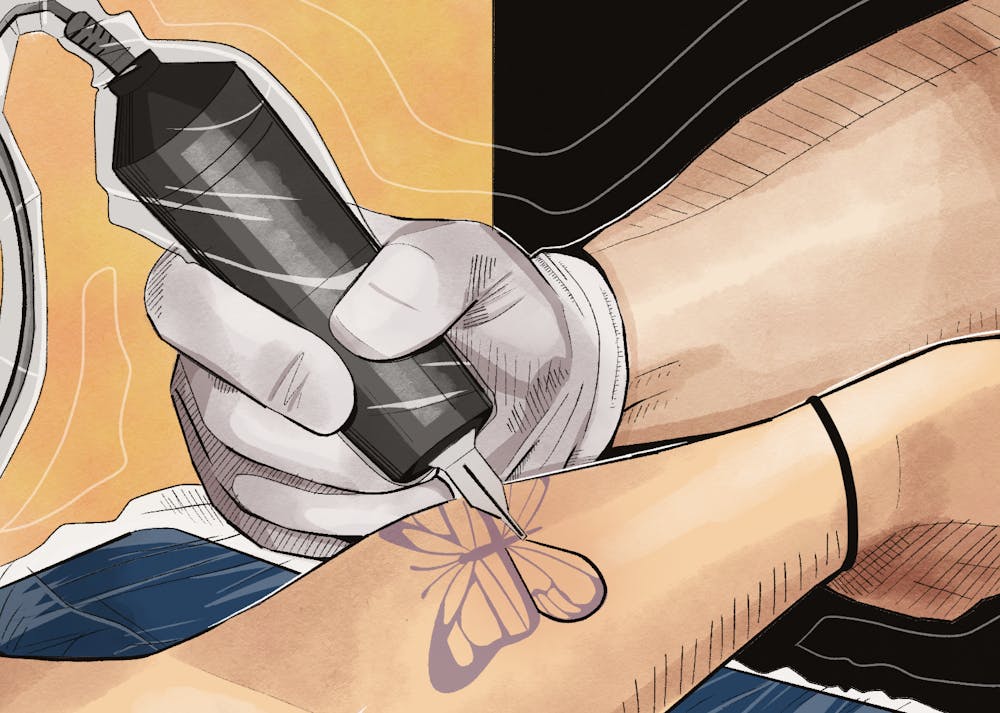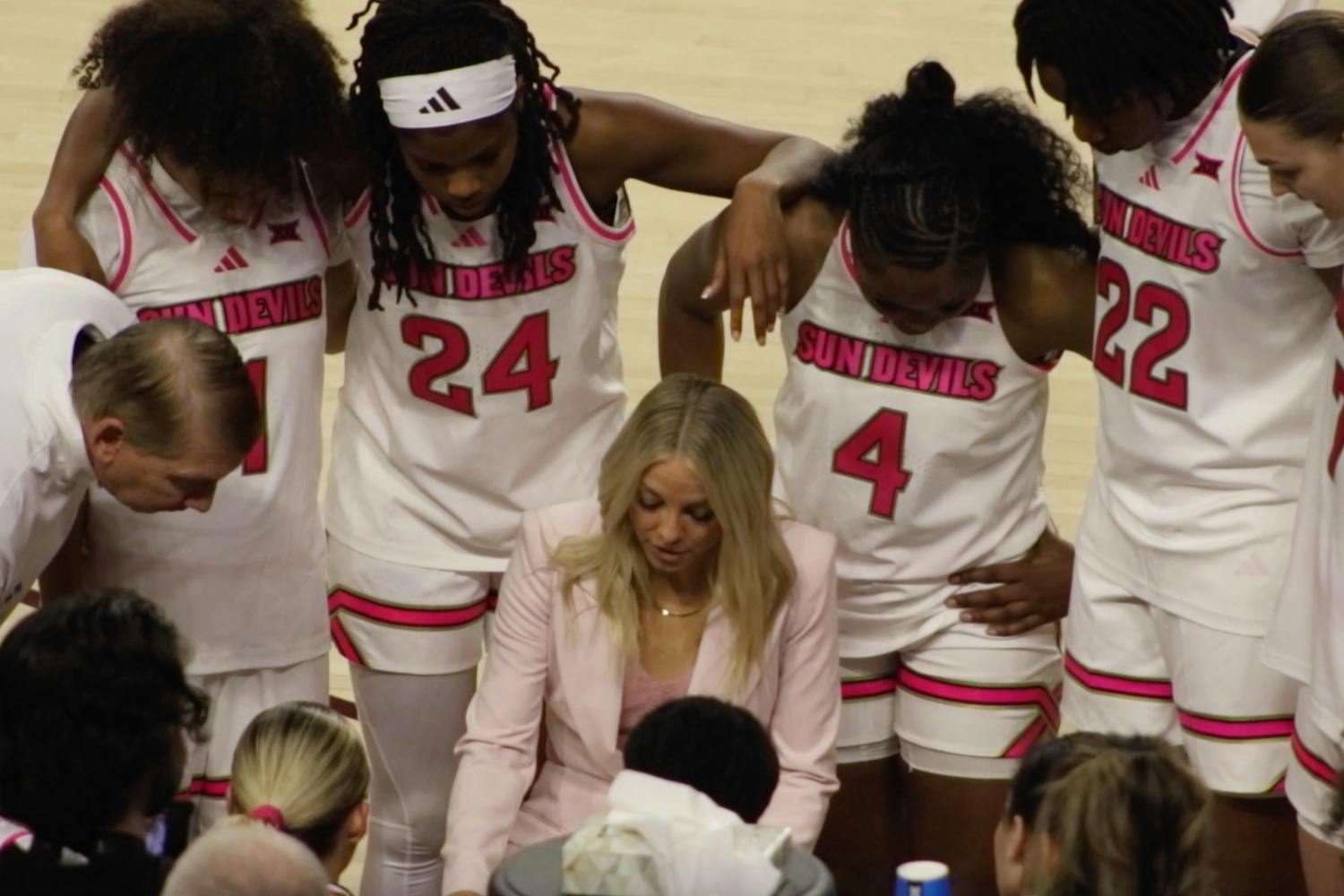With few state regulations regarding tattooing, additional research done by ASU students before getting a tattoo can result in a positive and clean experience.
State regulations regarding tattooing require the person who owns the tattoo gun to use sterile needles and the person receiving the tattoo to be over 18 or have parental consent. In 2005, Arizona also adopted laws outlining that any used tattoo needles or waste exposed to blood should be disposed of in the same manner as biohazardous medical waste.
"It's ridiculous that you have to have a license to cut somebody's hair but not give a tattoo," Living Canvas Tattoos owner Mark Walters said.
Many regulations are left to cities and counties, such as the City of Tempe and Coconino County. In Tempe, shops must remain a certain distance from other tattoo shops and various elementary and secondary schools.
Coconino County requires all tattoo artists to get a certificate and attend annual training on bloodborne pathogens. Bloodborne pathogens can cause diseases that occur in the blood such as Hepatitis C and HIV.
"I'm all for the licensing," Walters said. "I also think apprentices and people learning tattoo need to be licensed just like an apprentice or somebody learning to cut hair does. What Coconino does is awesome."
Evelyn Moore, a freshman studying English, said it's up to the tattoo artist's discretion to handle certain situations that aren't state-regulated, such as tattooing those intoxicated.
"It could be like, 'Hey, can you consent to this?'" Moore said. "The same way we do contracts, driving, sex; it's a matter of 'Are you too gone to consent?'"
Mary McNear, a junior studying criminology, said she looked at online reviews and artist portfolios before getting hers done at Club Tattoo in Scottsdale.
"Customers need to be doing their research about where they get their tattoos, and really looking into reviews and the kind of experience someone has and asking questions," McNear said.
Walters said his apprenticeships typically take one to two years. The apprentices "don't even touch tattoo machines for the first four to five months." They first learn about blood pathogens, health concerns, diseases occurring while tattooing, and cleanliness.
Moore said another regulation that should be implemented is how shops handle their needles.
"You should require new needles per customer (and) you should require a certain level of health standards; It's a type of medical procedure," Moore said.
According to the Tempe City Code and City Charter, all hypothermic needles must be disposed of after use in a "proper container of single-use contaminated needles" and shipped to a company for further disposal. This highlights sanitation efforts within the city.
Walters advises students researching tattoo shops to ensure they have clean needles and that the artist has experience.
READ MORE: Once etched as taboo, tattoos have become acceptable in the workforce
Moore got most tattoos at State 48 Tattoos due to location, and most were not planned far in advance. Through experience, Moore said tattoo shops should provide a wrap after the tattoo.
"I've been in places that don't give you a wrap after (the) tattoo," Moore said. "I don't think that should be the case. And I think they should provide a general sense of care for the artwork."
The research McNear did before getting tattoos resulted in a positive experience.
"All of my shops were pretty well researched; I didn't go to any with bad reviews or people that didn't have at least a few years of experience," McNear said. "I don't regret any of my tattoos."
Edited by Katrina Michalak, Walker Smith and Grace Copperthite.
Reach the reporter at glmcfar1@asu.edu and follow @ginia_mcfarland on X.
Like The State Press on Facebook and follow @statepress on X.
Ginia is a junior studying journalism and mass communication with a minor in criminology. This is her third semester with The State Press. She has also worked at Arizona Capital Times and KTAR News.




